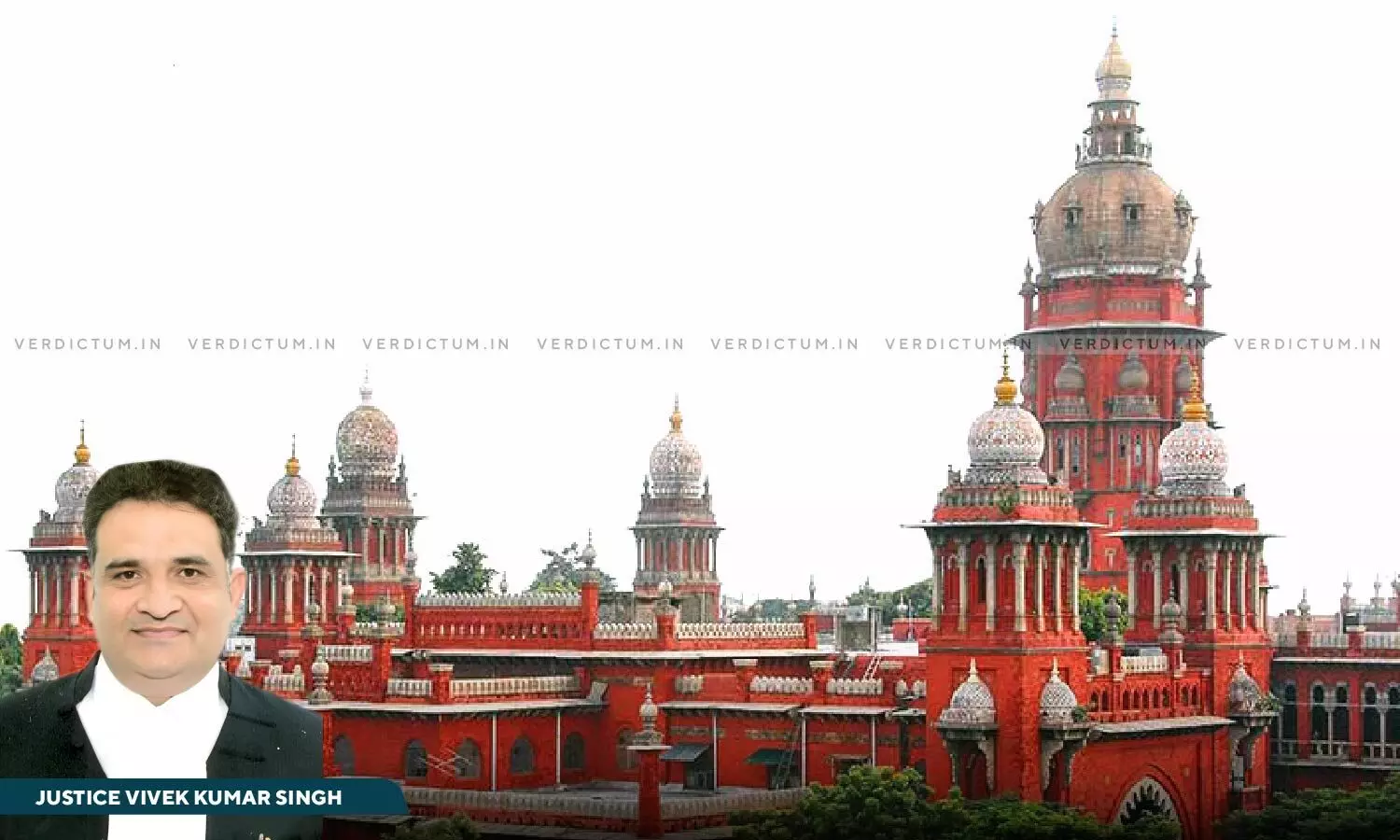
NDPS Act | 'Physical As Well As Mental Possession Of Drugs Necessary To Constitute Conscious Possession': Madras HC
 |
|The Madras High Court has reiterated that physical as well as mental possession of drugs are essential elements to constitute 'conscious possession' under the NDPS Act.
In that context, the Bench of Justice Vivek Kumar Singh observed that "conscious possession means a mental state of possession that is bound to be considered along with physical possession of the illicit material. Just like in criminal law, ‘Actus Reus’ and ‘Mens Rea’ are two essential ingredients to constitute a criminal offence, the same goes for the NDPS Act where physical, as well as mental possession of drugs, are essential elements to constitute an offence under the same law."
Additional Public Prosecutor A Thiruvadi Kumar appeared for the State.
The petitioners sought the suspension of the sentence imposed on them under the NDPS Act. The charges against them were related to an incident on June 5, 2019, where the police intercepted a Pulsar bike during a vehicle inspection. The pillion rider (Accused No.1) was found with a bag containing Ganja. The rider (Accused No.2) fled the scene, leaving his mobile phone behind. Subsequently, both petitioners were convicted under Sections 8(c) and 20(b)(ii)(C) of the NDPS Act.
During the trial, the prosecution presented witnesses and evidence, while the accused did not provide any defense. The Trial Court convicted the petitioners, sentencing them to ten years of Rigorous Imprisonment and imposing a fine of Rs. 1,00,000, with additional imprisonment in case of default.
The defence argued that there was insufficient evidence connecting Accused No.2 to the alleged offense. They also raised concerns about lapses in the investigation, such as not probing the ownership of the two-wheeler and not examining the seized mobile phone thoroughly.
The prosecution contended that the evidence, particularly the consistent statements of witnesses, established the involvement of Accused No.2. The prosecution emphasized the substantial quantity of contraband (23 kg of Ganja), the previous criminal history of Accused No.1, and the fact that both accused belonged to the same village.
The defence sought suspension of the sentence, relying on a precedent where the Court considered guidelines from the Supreme Court in granting bail. The prosecution argued that the stringent conditions under Section 37(1)(b)(ii) of the NDPS Act, pertaining to offences involving commercial quantity, applied in this case, making bail difficult.
The Court observed that, "in the case on hand, the petitioner/A1 is having three previous cases under the NDPS Act, that too, in two cases, the quantity of contraband seized were commercial quantity and hence, the factual aspects of the instant case are not similar to the order of this Court.. as relied by the learned counsel for the petitioners/accused."
It was further noted that, "When the police party intercepted the accused and the petitioner/A2 was not aware of the fact that A1 is in possession of contraband, then he would have stopped the two-wheeler, however in the present case, without any reason, the petitioner/A2 escaped from the scene of occurrence."
In light of the same, the Court held that both accused were not entitled for the relief sought.
Appearances:
Respondents: Additional Public Prosecutor A Thiruvadi Kumar
Cause Number: Crl.M.P.(MD) No.10586 and 14218 of 2023
Click here to read/download the Judgment